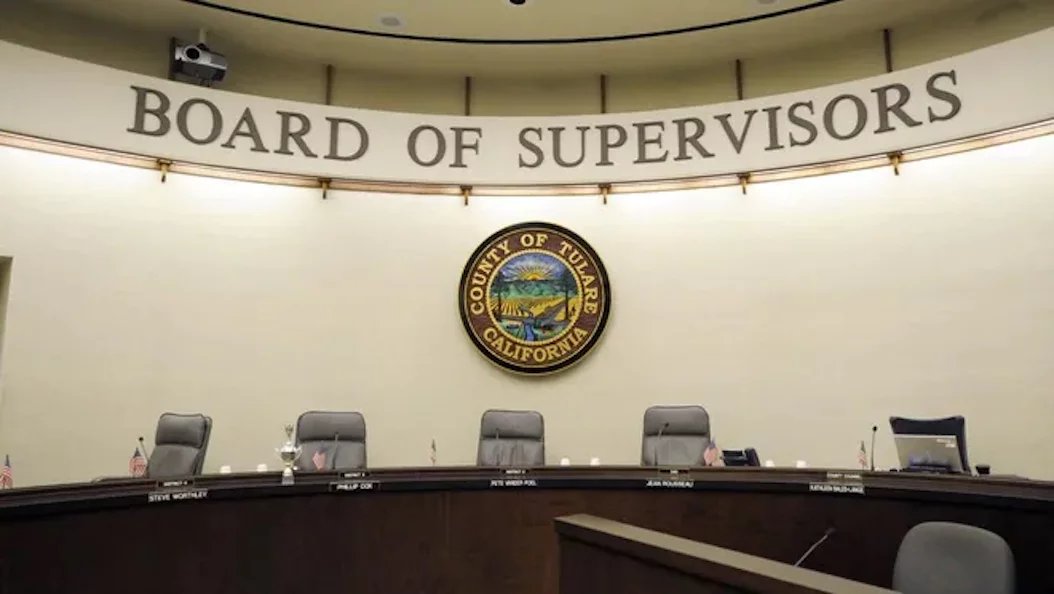Group urges support for ordinance to restrict private ownership of roosters for no reason other than cockfighting
Sacramento, CA — Animal Wellness Action and the Center for a Humane Economy are calling on the Tulare County Board of Supervisors to enact an ordinance to restrict private ownership of roosters to combat cockfighting, with proper exemptions for legitimate agricultural operators.
The Tulare Board of Supervisors will be looking at possibly significantly reducing the number of roosters someone can have on their property.

This issue will be reviewed as a scheduled matter at the board’s next meeting, which is at 9 a.m. Tuesday.
Animal Wellness Action has conducted investigations of illegal cockfighting operations in the county. These cockfighting operations are illegal under California and U.S. law and the cockfighters are routinely violating anti-gambling, drug trafficking, and money laundering laws.
In staged fights, roosters have knives or gaffs (curved icepick-like implements) strapped to their legs and they slash each other to death. The birds suffer gouged eyes, punctured lungs, and other grievous wounds for human entertainment and illegal gambling – not unlike the human and animal battles staged during Roman times at the Colosseum.
Federal law bans it everywhere in the United States, and most states themselves banned it in the 19th Century. California banned cockfighting in 1905, but the staged battles remain as the state’s most widespread form of illegal animal cruelty. In 2020, Animal Wellness Action obtained avian shipping records to Guam and uncovered more than 11,500 fighting birds from the mainland to this U.S. territory. Only Oklahoma cockfighters sent more birds to Guam for fighting than California, exposing massive contraband originating in California.
Cockfighting tied to dangers disease outbreaks
No state has had more disease outbreaks tied to cockfighting than California. Ten of the 15 vND outbreaks in the United States originated from illegally smuggled game fowl for cockfighting causing major disease epidemics in southern California in 2002-03 and 2018-20. At least 16 million birds died and more than $1 billion (inflation-adjusted numbers) was spent to control vND outbreaks.
“Gamefowl are high-risk disease vectors and reservoirs because they are widely sold and traded, deliberately mixed under stressful conditions at fighting derbies, reared under poor biosecurity, and employ husbandry or fighting practices that spread disease,” said Jim Keen, D.V.M., Ph.D., the director of veterinary science for the Center for a Humane Economy. Keen notes that virulent Newcastle disease (vND) and highly pathogenic avian influenza (HPAI, “bird flu”) viruses are the two most important diseases of poultry worldwide and that Newcastle Disease has repeatedly hit California.
If Tulare County adopts a comprehensive anti-cockfighting ordinance, it will join Los Angeles, Merced, Monterey, Napa, Orange, Riverside, San Bernardino, San Benito, San Diego, San Joaquin, Santa Clara, Santa Cruz, Solano, Sutter, Ventura, and Yuba counties in restricting numbers of roosters an individual can maintain.
In 2017, law enforcement came upon a “cockfighting stable” in Val Verde, in northern Los Angeles County. There, officials found nearly 8,000 birds, many of them ill and in clusters of 100 to 200 birds, being stabled for cockfighters throughout the Southland. This was the largest raid, by number of birds, in U.S. history. The Monterey County Civil Grand Jury investigated complaints and concerns about backyard cockfighting flocks, and released a stunning report about the scale of the problem and lack of enforcement. According to the report, “Numerous expert witnesses testified that today there are an estimated 1,000 known illegal rooster-keeping operations housing thousands of roosters” in the County.
“Cockfighting is associated with illegal gambling, drug trafficking, illegal weapons, and homicides,” noted Eric Sakach, senior law enforcement consultant with Animal Wellness Action. “Law enforcement has documented the strong connection between cockfighting and these other forms of crime. The Drug Enforcement Administration has documented that cockfights are used as networking opportunities by drug traffickers.”
Animal Wellness Action is working with residents in Tulare County in support of the ordinance.
Congressman David Valadao, R-22nd, is a cosponsor of the Fighting Inhumane and High-Risk Trafficking Act. That bill, H.R. 2742, seeks to strengthen the federal law against dogfighting and cockfighting.
California law: The state bans fighting or possessing animals for fighting, though it is the only state with misdemeanor-only penalties for a first offense (second offense may trigger a felony).
United States law: Federal law makes it a felony to sponsor or exhibit an animal in a fighting venture; sell, buy, possess, train, transport, deliver, or receive an animal in an animal venture; traffic in knives or gaffs for fighting; or use the mail service of the U.S. Postal Service, or advertising an animal for use in a fighting venture. It is a misdemeanor to attend a fight.

